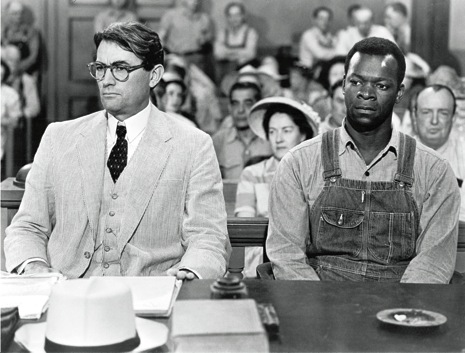True excellence takes sacrifice, mistakes, and enormous amounts of effort. ~ Rafe Esquith
What if schools focused more on each child’s character development and less on standardized tests?
Rafe Esquith author of Teach Like Your Hair is On Fire uses Lawrence Kohlberg’s Six Levels of Moral Development to help his economically challenged 5th grade students become the highest beings possible. He goes over the levels with his students on the first day of school. He doesn’t preach. He doesn’t use fear as a motivator. He creates awareness and embodies humility. He incorporates music, theater and travel into the curriculum – think School of Rock with Shakespearean plays added in. He spends twelve hours a day six days a week (or more) 52 weeks a year with his students. Rafe is a teacher but his goal isn’t to have the best test scores in the district. Rafe cares deeply about the character and souls of his students AND their education. Perhaps that is why he won Oprah’s Use Your Life Award and the Compassion in Action Award from the Dalai Lama.
5th grade students become the highest beings possible. He goes over the levels with his students on the first day of school. He doesn’t preach. He doesn’t use fear as a motivator. He creates awareness and embodies humility. He incorporates music, theater and travel into the curriculum – think School of Rock with Shakespearean plays added in. He spends twelve hours a day six days a week (or more) 52 weeks a year with his students. Rafe is a teacher but his goal isn’t to have the best test scores in the district. Rafe cares deeply about the character and souls of his students AND their education. Perhaps that is why he won Oprah’s Use Your Life Award and the Compassion in Action Award from the Dalai Lama.
Kohlberg’s Six Levels define the stages of moral growth humans go through on their way to inner wealth.
Kohlberg’s Six Levels of Moral Development
I. I’ll do anything to avoid trouble. I fear punishment.
II. Reward as motivation. I’ll do it for a cookie or a big salary.
III. I’ll do anything to please someone. Mommy is this good?
IV. I follow the rules. Rule #27 No independent thinkers.
V. I have empathy for others. I am considerate.
VI. I am guided from within. I don’t need recognition to be a good person.
As I read through each level I naturally place my own children at certain stages. I also try to figure out where I land. I honestly think I bounce around between Levels IV, V and VI (I’ve seen the light, it’s a flicker but it’s there) with an occasional dip down to Level I (more than I like to admit).
Level I: Fear of trouble. Most kindergarteners have a fear of getting in trouble with the teacher. I know at my kids’ school they have red, yellow and green cards. Kids start each day with a green card. If a child misbehaves he is asked to take a yellow card. If she misbehaves repeatedly she is asked to take a red card and parents are notified. My oldest son spent kindergarten paralyzed by the almighty red card. The first thing he told me when he got off the bus each day was who got red cards. He had to take a yellow card twice and about lost it. Did this fear affect his schoolwork? Yes.
Level II: Reward as motivation. We all know individuals who would sell their soul for a grape. Toys and money are their language of love. But they are the extreme. Most of us just want an atta’ girl or a pat on the back. Year end bonuses and employee of the month plaques are nice but would we do the right thing if there was no reward?
Level III: Working to please others. Even the nerdiest nerds with few material desires often work their lives away for letters behind their name or fancy certificates to hang on the wall to please well-meaning parents or an idolized mentor. What would they do if they navigated from their own hearts?
Level IV: Here are the rules. It’s comforting to know the rules. It’s important to have boundaries and guidelines. It’s nice to have them spelled out so there is no second guessing. I know I’ve posted House Rules in our kitchen with the hope that our kids would read and internalize them. They couldn’t deny them because they existed in black and white. I thought I was being open minded when I included the kids in the creation of the rules. But when the rules got wet or torn down because I was on to my next hippie idea, they were quickly forgotten. They weren’t following them because they believed in them. They were following them because they existed or because they had to.
Level V: I feel you. I think living on this earth two or three decades makes it easier to reach this level of development. It takes a few bumps and bruises of our own to walk in someone else’s moccasins. True Level Fivers consider others’ feelings and needs. Imagine people who do not talk loudly on their cell phones in public places, who allow others to merge in front of them in traffic and who genuinely want to help others with their skills and products. They are openly kind and considerate.
Level VI: I know what I must do. It is the rare individual that reaches Level VI status. Lee Harper’s fictional character, Atticus Finch, of To Kill a Mockingbird, is a good example. As a white southern attorney in the 1930s, he defends an innocent black man even when the community is eager to hang the defendant and willing to cause harm to Atticus and his family. African anti-apartheid leader, Nelson Mandela is another Level Sixer. They are humble, not flashy, heroes who have a code of behavior derived from within, not based on external motivation or recognition. Do they have easy lives? Are they revered or persecuted?
How Does This Stuff Go Over With Privileged Suburban Kids?
My husband and I sat in the living room with our three children and went over the six levels. The poor kids, all they want is a mom who takes them to Dairy Queen and buys them cheap crap from Target, but no, sorry.
Our youngest had the most questions. She wanted to understand and place herself. The boys listened earnestly for a while as they remembered our family viewing of To Kill a Mockingbird. They all could name teachers who use the fear of punishment style of teaching. They all pointed out times when we (the parents) rewarded them for behaving nicely. So Level II of us. But then their attention dwindled. They went from slight couch slouching to faces between the cushions, bodies twitching.
I’m not sure how Rafe Esquith does it, although I suspect injecting music, theater, art and old fashioned hard work into the curriculum helps. Even he loses faith sometimes when he gets beaten down by the system and apathy. Most of his former students do not achieve perfect scores on their SATs or attend Juilliard but they do credit his small L.A. classroom for teaching them responsibility, trust, humility and passion for life. Rafe makes it clear that teachers, parents and students must respect each other and be willing to put forth great amounts of effort in order to be better humans, not just better mathematicians or musicians. It is not easy and the motivation must come from within.
I’d like to think some of the character building ideas sunk in with my kids. Maybe someday I’ll catch them being an Atticus Finch when no one else is looking. I can’t imagine a higher achievement.
Do you know anyone who has reached Level VI? What kind of life do they lead? Where do you fall in the stages of development?
More on consciousness development:
Are You Part of the Pecking Order or Are You Marking Your Territory?, Maslow’s Hierarchy of Needs (meeting basic needs in order to reach the higher capabilities of creativity, consciousness and wisdom) and the Six Stages of Power by Janet Hagberg (powerless through powerful to power-free).**
More on school system alternatives and educational reform: Freedom to Learn by Peter Gray
Related space2live posts:
15 Ways Art Saves Children from the Stupor of Standardized Tests
More Than a Mom-Droid: Letting Children See Your Soul
Please tweet if you liked this. 🙂
Space2live has a Facebook fanpage! Stop by, click Like, and have access to daily updates about becoming your highest self as a parent, artist or introvert.
If you enjoyed this post, it would be lovely to have you as a space2live.net regular reader. Please click on Join the Space2live email list (right hand side of the home page.:)








I read this, but I have to process my thoughts on the 6 stages before I give details. I’ve them before though and find them interesting. In a way, I think most people hit many of the points. It’s just a matter of which do you hit most frequently. The more time goes by, the more frequently hit number six. I don’t follow the paths given in a hierarchy if I feel they are not going to get the clearly right results, ex. giving my volunteer vendors the recognition they signed up for and reparations when they don’t. I go straight to the top of the hierarchy to discuss remedying the immediate problem and make changes for the future. I act more often on my prior experience and instinct.
Clearly Mahatma Gandhi reached sixth level. This will cause controversy, but I believe Michael Jackson did as well.
I do have a friend who I believe hit it. She speaks and stands up for her beliefs, is compassionate, treats all equally without judgement but standing for wrong when she sees it. She’s getting a degree in Black Studies though she’s not black. She just enjoys multiple cultures at all times and can think and speak deeply.
I guess I did process and relay my thoughts today 🙂
LOVE this!! I however think this NEEDS to come from home and cannot wait or be trusted for schools to instill these traits. Schools are set up to teach levels I, II and III for sure and are always worrying about being politically correct about things. I so love that you shared this and with your kids. I can see my kids at different levels too. I see myself honestly, bouncing between IV V VI like you but, often dip down to III a lot even without realizing it. I have a hard time saying “NO” or feeling like I have displeased or let someone down and will often do whatever is needed to please them even it hurts myself in the process. Where does this stem from..ugh? I have no trouble with empathy or doing things without recognition or a reward and just because its the right thing to do. I am a rule follower to some extent but, am WAY MORE A FREE THINKER and have been known to break the rules a bit. 😉
You and I are very similar I find myself to be a “flicker” of light. (although I see this more for myself then YOU.) It’s there but, its no beacon of light or how one should live their life or model themselves by for sure.
I agree character and values begin at home. I also know many schools do have a policy or philosophy about values. My own kids’ school’s motto is Be Kind. Be Safe. Work Hard. or something like that. I actually couldn’t find it on their new website.?? I mostly want to say that character development means more than standardized testing.
Don’t beat yourself up about being a people pleaser.;) Part of that is how considerate you are of others. It could be part of your personal code, which is awesome as long as it doesn’t run you into the ground. You are so aware Rebecca. You DO give off light to anyone who knows you.